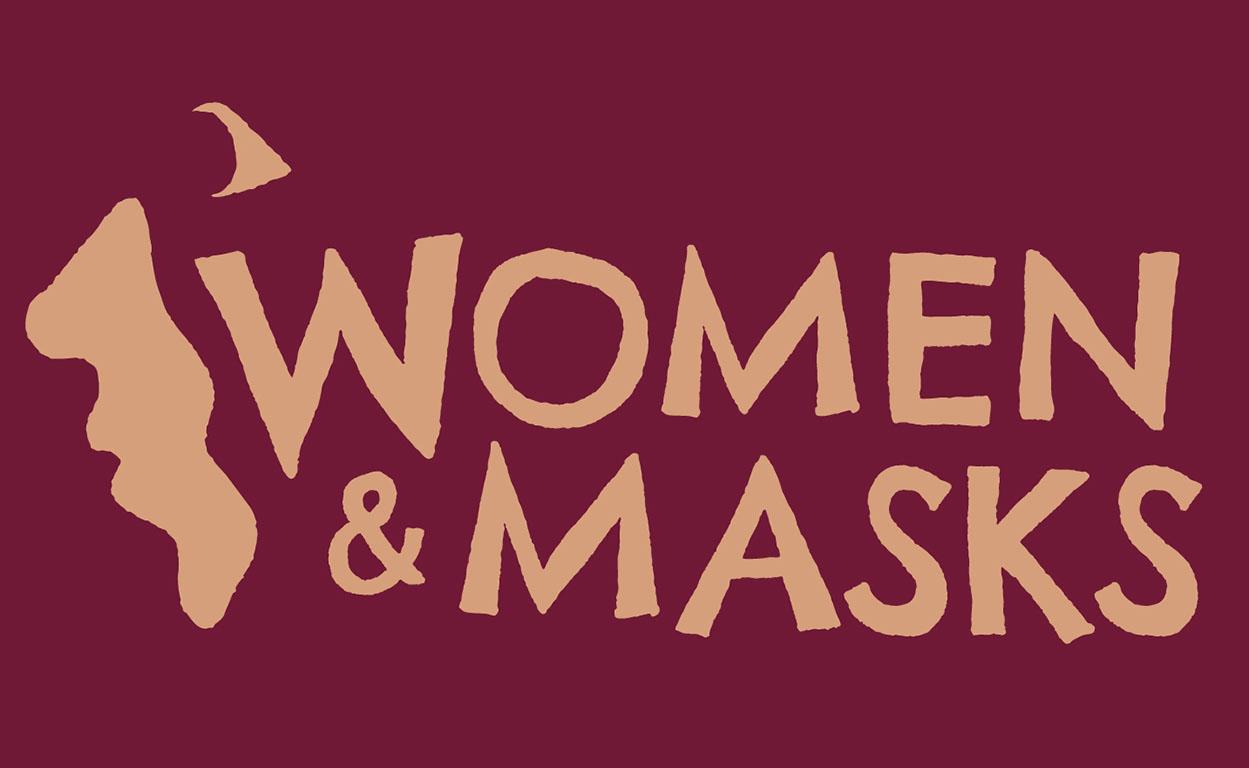Mask art — from oversized, artistic heads to masked portraits to theatrical masks — is featured in performance art around the world. A recent Boston University four-part symposia focused specifically on female figures in the world of theatrical masks.

The College of Fine Arts hosted the second weekend of its four-weekend conference Oct. 30 and 31 called “Women & Masks: An Arts-Based Research Conference.” The October symposia featured more than a dozen different mask makers, puppeteers and artists.
Felice Amato, conference director and assistant professor in art education in CFA, said she was inspired to create it to explore how women in performance and masks intersect.
Most female roles in storytelling center around their relationship to other male characters or their sexuality and looks, she said. Masks became a “really powerful tool of research” in looking deeper into female characters.
“We started talking about this idea of researching, but also maybe creating a series of masks that specifically explore the female universe,” Amato said. “Instead, sometimes you find that female characters, at least traditionally, have often been foils for the males, the plots for the males.”
For last weekend’s conference, Amato said the events focused on masks as “a transgressive tool” for a woman’s transformation in theatrical performance, society and spirituality.
“The witch, for example, as this archetype that breaks social norms and can allow a certain freedom from women,” Amato said. “Although it can also be a box too, as people have pointed out, but there’s a freedom in taking on this abject transgressive character.”
One of the conference’s workshops on Saturday featured Chiara Durazzini, artistic director and co-founder of Commedia dell’Arte troupe Pazzi Lazzi, who shared her work as a mask actress in three parts with an interactive experience of how to move the body and perform when wearing a mask.
Durazzini and Amato both highlighted the representation of female bodies when the face is covered with a mask.
“What happens with the female body when it’s masked?” Amato said. “If we think about sometimes the objectification of a woman and her body or her face, what happens when they wear a mask … Does hiding something make something else visible?”
Another presenter, Kate Kretz, an associate professor adjuncting Montgomery College, added how masks and other artworks help represent voices and opinions on social topics in the modern world.
Kretz added she creates masks and other forms of artworks to make political statements. Her presentation was called “MAGA Mask: Social Murder during the Trump Regime,” referring to the term ‘social murder’ coined by Frederick Engels, and also takes from an ongoing “Make America Great Again” counterfit hat collection to remake them as “physical manifestations of the truth.”
Her work, which reworked the letters on counterfeit hats to say “social murder” on face masks as well as red Ku Klux Klan-esque hoods, got her banned from Instagram and Facebook.
“My one fear is that my cry is not loud enough, not dire enough,” Kretz said during her presentation on Saturday. “We’re living at a pivotal moment in our history. Historians are speaking up to tell us that the current U.S. environment is one that they’ve seen before, identical to governments that went on to commit some of humankind’s worst atrocities.”
The conference also featured Deborah Hunt, mask maker, performer and puppeteer, who discussed her career experience and her collaboration with the group Papel Machete on a project called “The Eve of Abolition.”
Hunt said through mask making and the conference, she hopes her efforts create an impactful experience for those who see her performances and works.
“I would like for people to be able to appreciate the complete worlds that I strive to create with masks,” Hunt said. “Maybe if I’m lucky, [people] might see things differently.”
Hunt also said how she was interested to see how the conference centered around women in the industry of theatrical masks.
“I watched the last September sessions and it’s so interesting, because everybody has such a radically different approach,” Hunt said.
Eleonora Mancuso, a doctoral student in the College of Arts and Sciences, translated for Italian presenter Nora Fuser on Sunday, said Mancuso said the conference’s overall focus on women in theater stood out to her.
“Each [event] includes women in theater, which is something that most of the time you really don’t see,” Mancuso said. “From a French literature point of view, you never really speak of the women character, you only speak about men and men were mostly represented on scene.”
Mancuso said the conference allowed her to step outside her field of French literature, where she’s earning a PhD.
“For me it’s to get away from the literature world,” Mancuso said. “I’m still in the arts but I can see how women are not only represented in literature, but also in theatre and how they’re able to find a voice.”
The third weekend of the conference will be Feb. 11-13 and Amato and her team will be partnering with the African Studies Center on campus.
















































































































